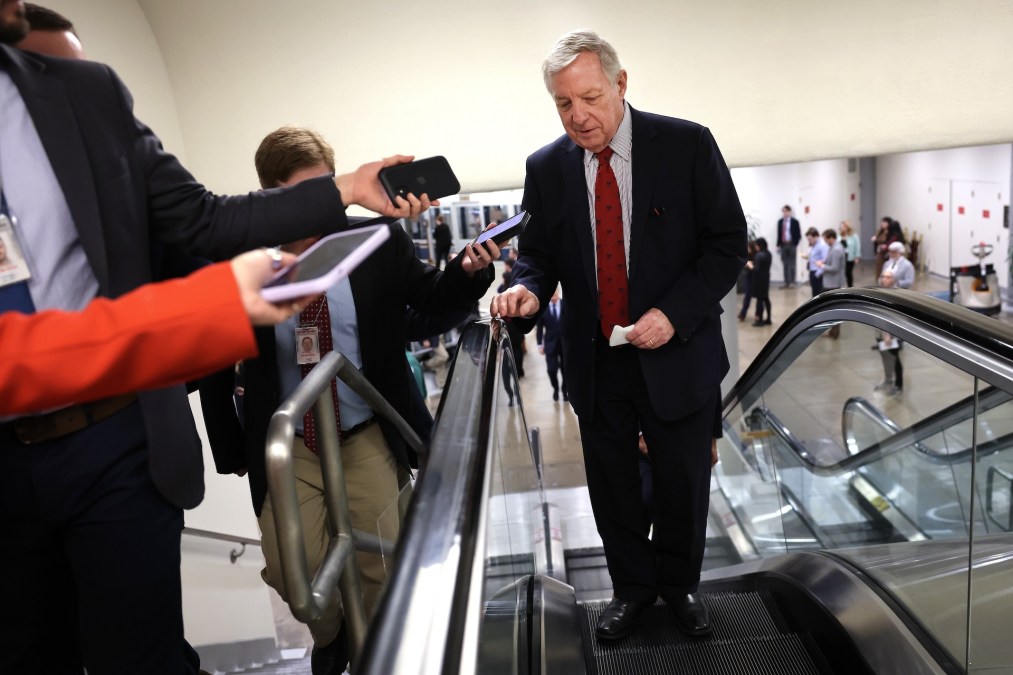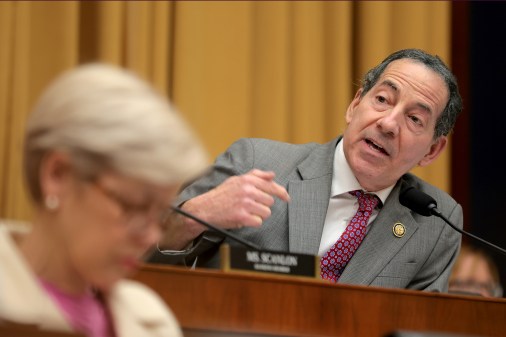FISA reauthorization heads to Biden’s desk after Senate passage

Legislation to extend potent surveillance authorities won the precise number of votes it needed for passage early Saturday, sending the bill to the president for a signature after a midnight lapse of the spying law and a tumultuous path to victory for the Biden administration.
While administration officials touted the two-year extension of what National Security Adviser Jake Sullivan called “one of the United States’ most vital intelligence collection tools,” it was a disappointing outcome for those who sought additional privacy safeguards for the Section 702 powers used to surveil overseas targets — but that sometimes can sweep in the communications of Americans.
The final vote on the Foreign Intelligence Surveillance Act measure, which the House passed last week, was 60-34.
Senate Majority Whip Dick Durbin, D-Ill., called it an “alarming bill.” Beyond seeking improvements to the legislation’s privacy protections, he and like-minded lawmakers and advocacy groups are worried that a provision changing the definition of “electronic communication service providers” would add a wide swath of organizations obligated to assist U.S. government surveillance.
“Rather than fixing the flaws in Section 702, the House bill will dangerously and unnecessarily expand it,” he said during debate Thursday.
Senate Intelligence Chairman Mark Warner, D-Va., said on the floor Thursday that he thought the service providers amendment “could have been drafted better” in the House, but would not do what some feared. He added that the effects of the change would be subject to court and congressional oversight, and Congress would have a chance to revisit the law in 24 months.
Sullivan touted adjustments in the bill, which included a requirement that an FBI supervisor or attorney sign off on any queries of the Section 702 database for U.S. person identifiers, such as phone numbers or emails, as “the most robust set of reforms ever included in legislation to reauthorize Section 702.”
Critics of the legislation — which included an unconventional mix of Democrats and Republicans — say those changes fell far short, but were unable to win adoption of six amendments that would achieve their aims. A Durbin amendment to prohibit warrantless access to the communications and other information on U.S. persons, the biggest adjustment that critics sought, fell on a 42-50 vote, marking the latest razor-thin margin for that proposal. A House amendment on a warrant requirement fell on a 212-212 vote.
Sullivan said that President Joe Biden would swiftly sign the legislation. Privacy advocates looked ahead to the next expiration of Section 702 powers in two years.
“Senators were aware of the threat this surveillance bill posed to our civil liberties and pushed it through anyway, promising they would attempt to address some of the most heinous expansions in the near future,” the American Civil Liberties Union posted on X, formerly known as Twitter. “We will do everything in our power to ensure that these promises are kept.”





